LATEST NEWS
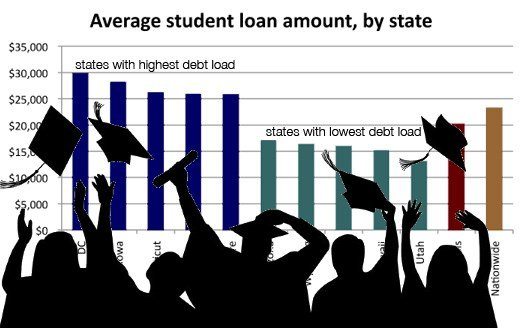

“Work hard. Get good grades. Go to a good school and you will be successful.” Our generation has been told time and again that through hard work and dedication, we will be able to live happy lives, have secure jobs, and start families built on comfortable finances. But on the day of action around student debt, it [was] clear we need more than these easy answers to help Millennials cope with the growing burden of education costs.
I come from a middle class family. Both of my parents served in the Marine Corps and got good jobs. My father works in law enforcement, and my mother is a teacher. They taught me that if I put in hard work, I would reap the results. So, I graduated at the top of my class in high school and went to a top (public) university. I worked all four years of college and graduated on time.
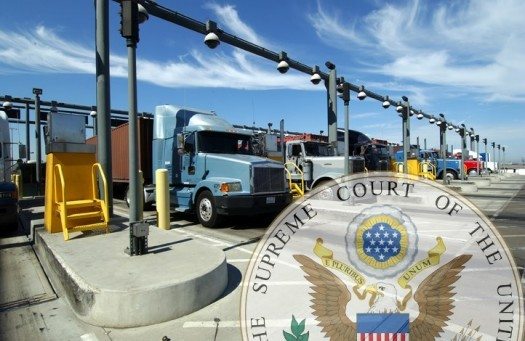

Last Thursday the U.S. Supreme Court ruled in a case that had the potential to impact millions of people in Southern California – people who have been breathing cleaner air thanks to the Port of L.A.’s Clean Truck Program. The Clean Truck Program is an innovative policy that has been successful in reducing port-related truck emissions by as much as 90 percent. But it has enemies, most notably the trucking companies who profited from the dirty, unregulated system as they worked on behalf of Walmart, Target, and every other big importer.
The national trucking lobby, on behalf of these firms, sought to kill the program by challenging it in court. As we passed environmental and public health milestone after milestone, the trucking industry filed legal motion after legal motion, and the case bounced between all levels of courts. But Thursday was the big one—the highest court in the land finally weighed in on the legality of the program overall.
» Read more about: Supreme Court Blocks Industry Bid to Kill Clean Truck Program »
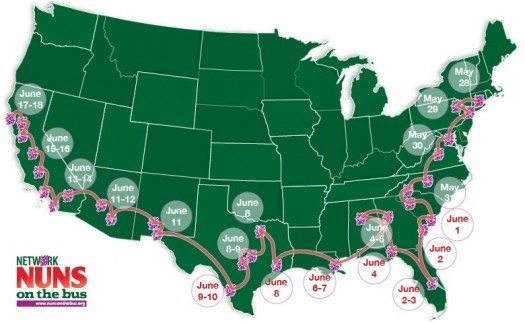

A group of nuns began their 6,500-mile bus journey late last month in New Jersey with a view of Ellis Island. Since then, their brightly-decorated blue bus with images of hands raised — to show support for families and immigration reform — has rolled for more than 5,000 miles down Eastern Seaboard roads and into the South. This week marks the California leg of the “Nuns on the Bus” tour supported by NETWORK, a national Catholic social justice group. The nuns’ goal during this 15-state, 40-city whirlwind event which ends on June 18: “Standing with immigrants, faith-filled activists, and Catholic Sisters who serve immigrant communities.”
Last Wednesday, the nuns were scheduled to speak with community groups in Nogales, Arizona and federal lawmakers in Phoenix. After the meeting with government leaders in Phoenix, they joined immigration groups to discuss the tour, the importance of family unity and citizenship for 11 million undocumented immigrants in the country,
» Read more about: Nuns on the Bus Tour to Reach San Francisco Today »
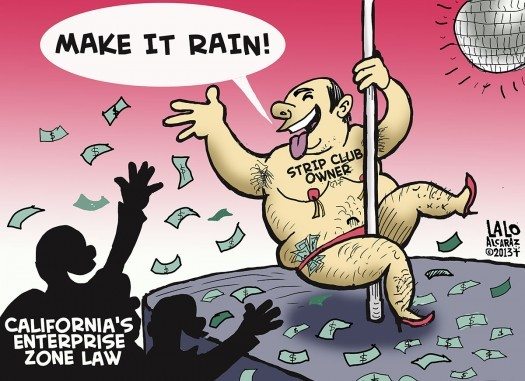
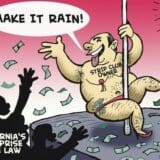
In How Enterprise Zones Are Killing the California Dream, Frying Pan investigative reporter Gary Cohn looked at the impact of the controversial program, including workers who lost their jobs while their former employers received tax breaks for hiring lower-paid replacements. He also reported on two strip clubs revealed to have benefited from the secretive program. Other media have picked up the story as well, building momentum for an overhaul. A more detailed overview of the Governor’s plan can be found here. The following post first appeared in the blog Labor’s Edge.
To some politicians, economic development means giving hundreds of millions of taxpayer dollars to strip clubs, fast food joints and retail giants like Walmart. Gov. Brown, thankfully, has a better idea. Today, the Governor announced a broad coalition of labor, business and others in support of his good jobs plan that will flip the broken enterprise zone program into real incentives for creating quality,
» Read more about: Governor Brown Outlines Plan for Good Jobs »


Words of Fire, the Frying Pan’s new poetry section debuted this week with a series poems the new mayor should read.
These five poems by some of L.A.’s finest poets are intended to help Mayor-elect Eric Garcetti look closely at our city and listen with care to its diverse voices, from janitors to sidewalk fruit sellers to donut shop insomniacs. They are also an antidote to the platitudes of the campaign trail, and a reminder that the best political speech – and acts – can tap into people’s deepest emotions and aspirations.
A Model of Downtown Los Angeles, 1940
The oldest Mercedes in California adorns
the crowded foyer of the L.A. County Museum
of Natural History, and babies shriek like bats
in the elevator that lowers my daughter
and me to the basement….
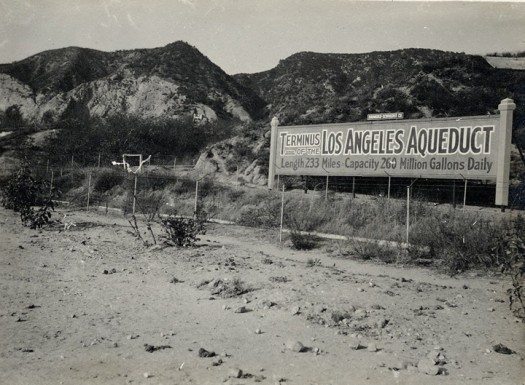

It’s a bright, guilty world.
–Orson Welles in The Lady from Shanghai
But there is no water.
–T.S. Eliot, The Wasteland
The oldest Mercedes in California adorns
the crowded foyer of the L.A. County Museum
of Natural History, and babies shriek like bats
in the elevator that lowers my daughter
and me to the basement. There, among the faint,
intermingled drifts of ammonia and urine
from the men’s room, phantom display lights
luring the shadows over the inventions of Edison
and Bell, and dusty monuments to a century
of industrial progress, lies the mock-up L.A.,
whose perusal has been assigned to my daughter’s
fourth-grade class in California history.
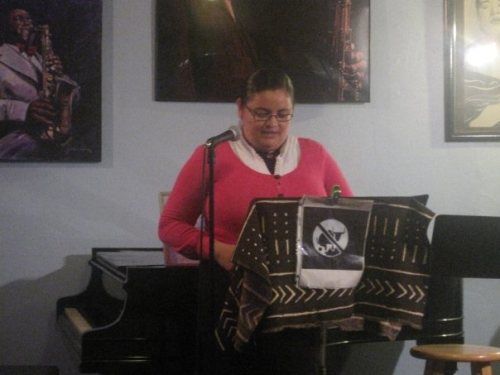

As dawn breaks through the crimson curtains,
you rise, kiss Amá goodbye, the only time
I see you do this, drive away,
circles of dust and tire marks remain.
You return four months later with the trunk full
of crates of strawberries peaches, apricots,
grapes, and plums. The nectar seduces our lips,
seeps through our fingers. Our nights fill
with dreams of this Garden hidden
in the center of the valley.
Most nights you sit in the dark, whisper
about a scornful sun, of being forced
by a landowner to hold a blue whistle
between your lips so you won’t be tempted
to consume the fruits you pick. The sound
of whistles merged with the rustle of the wind
fills the fields like a bird song.


How a union of Yale employees aligned itself with community activists and won control of a beleaguered city.
This article and illustration originally appeared in The American Prospect.
Major Ruth became a civic leader because he made a promise to his neighbor, Brian Wingate. Both had moved to the Beaver Hills section of New Haven, Connecticut, in 2003. A neighborhood of aging single–family homes that had seen better days, Beaver Hills had been targeted by the city for a housing–rehabilitation program, and, with the zeal of new arrivals, Ruth, a manager at the local utility company, and Wingate, a custodian and union steward at nearby Yale University, sought to involve themselves in neighborhood–improvement ventures. That proved harder than they had anticipated. Although New Haven aldermanic districts are tiny, encompassing no more than 4,300 residents, Ruth and Wingate couldn’t find anyone who could identify,


“If politics were the science of humanity.”
–W.C. Williams
Dear American people, I’ve just got
to talk to you about your government.
You are the government,
the way we are the earth and sky, the way
we are the blood and the government
the branches of the tree. You and I
are the government and we need
no more amateur presidents, please.
Once again, if you and I are the suit,
the government’s the tie we wear into the world.
America, we are the fabric; and to knit that tie together
takes statecraft. Is it too much to ask ourselves
to pay attention?
To make of government a proper tool?


Last Friday, my wife, Susan, was out where Santa Monica meets Brentwood to tell the President not to approve the Keystone XL pipeline. No one caught a glimpse of him, of course. What she did see were scores of expensive cars moving down San Vicente – black, big SUVs, as usual, and top-of-the-line Mercedes and BMWs but also Jaguars, Ferraris, a Rolls, even a Lamborghini, plus others she couldn’t name. These cars begin at $75,000 and go to the mid-six figures.
Also trying to wind though the traffic maze were the workers, gardeners in small, beat-up Toyota pickups, house maids in compacts from 20 years ago, bunches of Latinas waiting at the bus stop for public transportation and delayed by the President’s presence at a fundraiser in a nearby home. The juxtaposition of the vehicles of the very wealthy and those of their servants was what she found remarkable about the experience.
» Read more about: Santa Monica’s Lethal Shootings and the Culture of Economic Desperation »


It’s late, so the late
Karen Carpenter comes off
the radio at 1 a.m. The diners
complain; she’s passé, she’s so
post-mortem. You see,
it’s Night of the Living.
Outside the sirens rise up
and home in. Now I’m upstairs
asleep, lost to this din,
but downstairs the Usuals
stake out a square
of linoleum, sit down and
fit in.
Like the jailed I bet
they get the same damn thing.
Some special—Styrofoam.
They sip the rim. I bet
at this hour the donuts
lie face up, half
human. The walls are glass
there, so those guys can see
the fix they’re in: a block
of illegally parked cars,

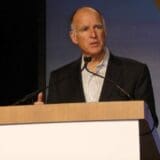
In How Enterprise Zones Are Killing the California Dream, Frying Pan investigative reporter Gary Cohn looked at the impact of the controversial program, including workers who lost their jobs while their former employers received tax breaks for hiring lower-paid replacements. He also reported on two strip clubs revealed to have benefited from the secretive program. The governor and legislators have now put forward proposals to reform the program or replace it with other economic development programs. This post originally appeared in Labor’s Edge.
You’ve probably seen the stories by now: Enterprise zone tax breaks, which are supposed to provide incentives for good jobs, are instead going to strip clubs and low-wage mega corporations like Walmart.
The current enterprise zone program is shrouded in secrecy, with virtually no accountability or transparency. Study after study shows the program is a massive failure,
» Read more about: End the Enterprise Zone Abuse: Gov. Brown’s Good Jobs Proposal »


after the long day’s hustle, Papa returned
home waving fistfuls of Tootsie Rolls, wolfed down
his supper, changed from his suit into his long-sleeved
gray coveralls or blue cotton smock and slid out of
silky stockings and Italian leather loafers into white
cotton socks and well-scuffed All-American work shoes
for his night shift scrubbing and waxing corporation floors
we missed his loud full laughter
around the television and what company we had
wasn’t as interesting as the visitors
who came through when he hung around home
but we trusted Papa was doing his best
to become “healthy, wealthy and wise”
without shame over shameful wages—enough
indian head nickels to finance a scheme
(the men he worked graveyard with
always became buddies
and no matter whose car broke down,


America’s economy will suddenly grow by $400 billion — roughly three percent –on July 31, when the Bureau of Economic Analysis begins to include in its GDP calculations the value of investments in such intellectual property products as songs, books and movies. The new numbers will reveal that Stephen Sondheim, Stephen King, Steven Spielberg and Ray “Even Stevens” Stevens have been far more important to the nation’s financial well-being than government stats have previously indicated.
This news feels as uplifting as a double dose of premium-grade placebo. But there’s more than feel-good bookkeeping at stake here. Plays, stories, films and music generate wealth – wealth government stats are supposed to measure.
The nation has always struggled with who owns that wealth. In the Wild West frontier of the internet, music, films and news were easily pirated. Now, there’s a newer, quite possibly wilder West,
» Read more about: Digital Fabrication: More Than the Stuff of Dreams »
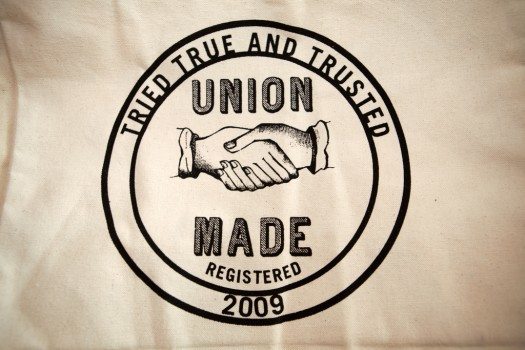

There are many similarities between the civil rights movement of the 1950s and ’60s and the union movement that preceded it in the early decades of the 20th century. Both met with hostility, opposition, and violence. Yet today we look back on the former with gratitude and admiration, while the latter is either forgotten or distorted in our collective memory.
Hard-fought union gains have become part of the fabric of our society: the eight-hour day, elimination of child labor, and safer conditions are but a few of the benefits that unions have secured for all of us. Yet unions have been broadly demonized, and the gains they have won are slipping away.
I’ll be the first to admit that unions have their issues. Nevertheless, I am grateful that my husband and I have been loyal union members all of our adult lives (I am a teacher; he is a Teamster).


We all know that working for Walmart is no picnic. They pay low wages, they slash hours, they offer little or no job security, they exploit and intimidate workers and they use sweatshop labor. That’s why Walmart workers are on strike this week, to protest the corporation’s greedy behavior and shady business practices. Learn more about the strike here.
Many of these striking workers earn so little that they’re eligible for public assistance, like food stamps and Medicaid. And that’s no accident; it’s exactly the way Walmart likes it. We as taxpayers foot the bill for their workers, and the corporate head honchos get even richer.
According to a new report released today by the California Works Foundation:
[Walmart] workers use 40% more public health care assistance than the retail average. The company’s use of public assistance costs California $86 million per year,


This week, Frying Pan News has been following stories as Walmart workers joined caravans coming from across the country, converging at the company’s annual shareholders meeting in Bentonville, Arkansas. This post originally appeared on MakingChangeAtWalmart.org. Video of the action is here.
What a week! After an action-packed journey, the six Ride for Respect caravans all arrived safely in Bentonville, Arkansas over the weekend. But the buses of #Walmartstrikers were not about to sit around until Friday, when Walmart’s annual shareholders meeting will take place–that’s for sure!
[Mon] morning, a group of 200 OUR Walmart members and supporters marched through the misty dawn to Walmart’s Home Office, and arrived just as the employees at the headquarters were filing into work. Quietly, the throngs of green shirts spread out in front of Home Office–many in the crowd had tape-covered mouths with “ULP strike” written across, » Read more about: Action at Walmart’s Home Office as Caravans Arrive in Bentonville! »


For several years, Walmart’s annual shareholders meeting has been the staging ground for high-profile protests against the retail giant’s treatment of its employees. As Walmart workers from across the country — many of whom are on strike — once again converge this week on the corporation’s headquarters in Bentonville, Arkansas, one startling fact stands out: none of them, or any of the retail giant’s 1.4 million workers, are represented by a union.
Walmart’s success in keeping its American workforce entirely nonunion is, of course, well documented — so much so that observers of the company’s chronic labor strife almost take it for granted. But even in the context of a long national decline in union membership among American workers, it is staggering that the country’s largest employer, and one of its stingiest, has remained union free.
While Walmart contends that its employees have no use for union representation,
» Read more about: Walmart’s War Against Unions — and the U.S. Laws That Make It Possible »
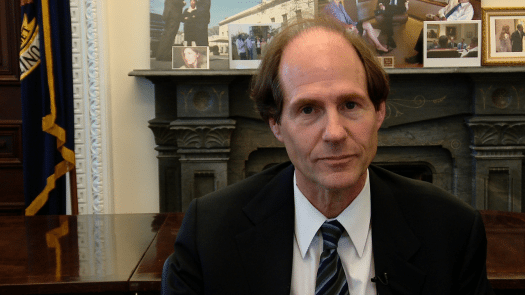

Former Obama official Cass Sunstein explains in a recent article what a “wing nut” is: anyone, right or left, with “a dogmatic commitment to an extreme political view” that is “false and at least a bit crazy.” Wing-nuts, he says, “impugn” the “motivations” or the “good faith” of people with whom they disagree, rather than confront their actual arguments.
Sure, you may say, that’s fair: an equal- opportunity definition of “wing nut.” Who wouldn’t want to join Sunstein in occupying the moderate middle and calling out the intolerant and the uninformed at both ends of the political spectrum, the people, as he says, who call Barack Obama a socialist or George W. Bush a fascist?
The question, though, is how does Sunstein use this even-handed rhetorical stand against “wing nuts”?
To know, we don’t have to look any further than Sunstein’s third example of a wing nut: someone who believes “that big banks run the Department of the Treasury.” Now,
» Read more about: The Moderate Middle’s Dirty Little Secret »


Eric Garcetti has enormous potential to be one of L.A.’s great mayors. He is young (just 42), full of energy, experienced in politics and government, passionate about L.A., brimming with policy ideas, compassionate toward the disadvantaged and a great communicator and explainer. I saw many of these traits up-close when I co-taught a course with him at Occidental College in 2000, and have watched him blossom as he joined the City Council and served as its president.
Now he faces the daunting challenges of running America’s second-biggest, and most diverse, city.
No mayor can succeed unless he or she attends to the routine civic housekeeping tasks that residents expect from municipal governments – fix the potholes, keep traffic flowing, maintain public safety, keep the parks and playgrounds clean and in good repair.
But Garcetti didn’t run for mayor just to be a caretaker. He promised more.